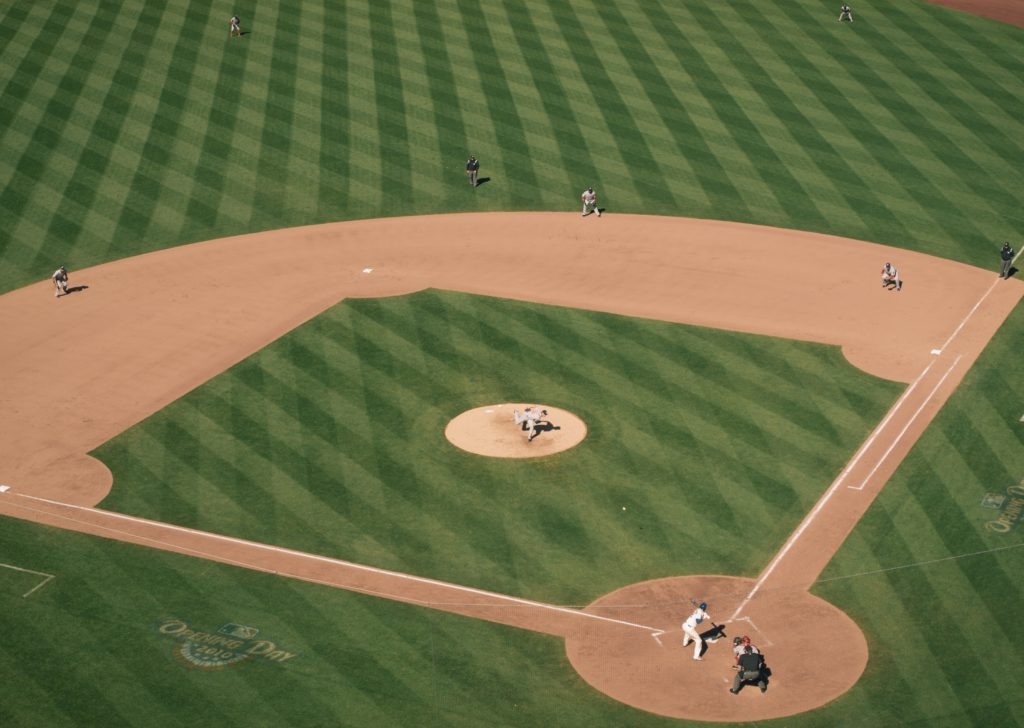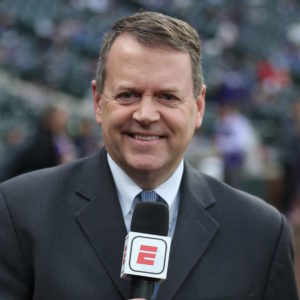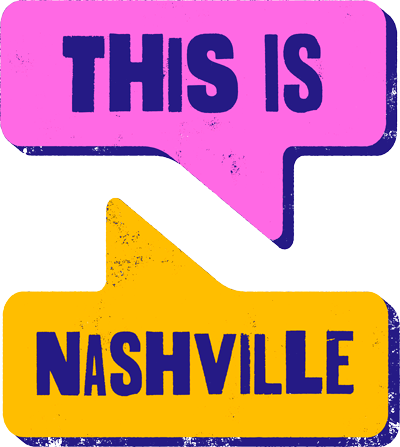
Major League Baseball is back, and for ESPN analyst Buster Olney, that means returning to the press box.
The Vanderbilt alum and former Nashville Banner sports reporter joined This Is Nashville host Khalil Ekulona to talk about the changes to this MLB season, what Nashville’s sports scene was like in the late ’80s and why Olney is confident that the city will get a MLB team.
Khalil Ekulona: It’s, you know, it looks like the new MLB season is actually happening after a little bit of a lockout that was earlier in the off season. What are you most excited about as the major league season opens?
 Courtesy of ESPN
Courtesy of ESPN Buster Olney
Buster Olney: There was a lot of concern within the sport that the labor situation was going to keep baseball shut down, maybe for a month or two months. In fact, a prominent agent told me back in December, ‘Look, I’ll see on Flag Day,’ which was June 14. But they got that settled. They got the players into spring training. There’s been a big rush for everybody to get ready for opening day.
Now as we go forward, it’s about the young players. You know, there’s always been a question about why doesn’t baseball market its players as well as other sports? The fact is, baseball has this incredible generation of young players, whether it’s Juan Soto with the Washington Nationals. Ronald Acuña Jr., the Atlanta Braves. Of course, last year, so much attention with Shohei Ohtani. they’re just a lot of exciting players in baseball these days.
KE: What about some of the changes to the rules? What’s different this year and what’s your sense of how fans are responding to that?
BO: Well, the most prominent change, I think, for casual viewers will be these devices that catchers are using now to signal pitchers. That’s going to be really interesting. So they have a transmitter on the forearm of their left wrist. And so the catcher will punch the buttons, you know, fastball outside and there’ll be a voice that’ll be built into the cap of the pitchers through a listening device as well as three other players. So that all that time we seen spent in the past where the pitcher is giving the signs with his fingers, you know, stepping off, maybe the catcher forgets the signs. That’s all going to be streamlined now, and that I think really changed the game.
Two other significant changes. One: the National League has never used the DH on a regular basis before this year. Moving forward baseball will have it the designated hitter used for all teams, and the last one is baseball expanded its playoff field this year from 10 teams to 12 teams. So if you’re a fan of a mid-market team, a small market team, you might feel a little bit more hope going up against the big dogs like the Yankees and the Red Sox and the Dodgers.
KE: I really like the expansion of the playoffs. I know they did it for COVID, and I really appreciate that. I just think it adds more excitement and, like you said, more opportunity for fans to buy in to the entire season and the playoffs. So let’s go back in time a little bit. You started covering our minor league team, the Sounds for the Nashville Banner back in 1989. Take me back to that time. What was Nashville like as a sports town back then?
BO: Well, first off, whenever the conversation has come up about whether or not there should be expansion of Major League Baseball, I always tell people “Look, I’m biased.” Nashville is an unbelievable sports town, just a ravenous appetite for sports. You know, at that time, the Sounds were one of the highest growing teams in the minor leagues. It clear that city itself looked so different when I go back there. I go on the same streets they drove on before, but you’re looking around at the landmarks and they just don’t look the same. It’s so crowded. There’s so much energy in the place. A few years ago, I went to a Predators game and was just blown away not only by that area and how that’s built up, but the energy level in that place. So at that time is a little bit more sleepy. Not as many fans, but there was always that passion for sports.
KE: What was it like to be a sports reporter in that version of Nashville?
BO: Well, at that time, I’m a I’m a young 24, 25-year-old reporter and getting my first chance to talk to players. For me, it was just a great learning experience. Guys like Skeeter Barnes were on that team. He was an all time great Nashville Sound who now works as a coach in the minor leagues. To learn about the day-to-day in covering a team, the ups and downs, guys being promoted, the big leagues, guys being demoted – I always tell people that Triple A is a unique level because the players are only one phone call away from being in the big leagues. And on the other end, they’re also one phone call away from being down in the minor leagues in much less plush conditions.
KE: There were no sport major sports teams in Nashville back in ’89, so were the Sounds a much bigger deal then?
BO: There’s no doubt, and I’ve seen the interest in a lot of teams because you didn’t have the Titans, you weren’t competing with the Predators. When I was going to Vanderbilt, that place was packed. Memorial Gym was packed every game. And now this when I see attendance figures, – 6,000 to 7,000 – I think that just reflects the menu that if you’re a sports fan, you can draw from.
KE: Do you have any good stories from your time as a beat reporter that you’re at liberty to share?
BO: Skeeter Barnes was the outfielder. He wound up playing like six years in the major league, some with the Detroit Tigers. I grew up in central Vermont and always fashion myself as maybe the greatest wiffle ball pitcher to ever come out of central Vermont. So I talked to a lot of smack with Skeeter, and one day he’s like, ‘OK, let’s go out.’ He had a wooden bat, and I faced him in wiffle ball. I struck him out six times. He threw down the bat in angered. Some of the other players had a lot of fun at his expense.
I remember once I wrote a column in 1989 that was very critical of a young Yankees outfielder named Deion Sanders. Deion didn’t like that story very much, and he sent a baseball up to the press box, which said on it ‘If you write like that your whole life, you’ll always be a loser.’
KE: Almost no one really covers minor leagues anymore, but you got a chance to do that. How did that experience shape your career as a sportswriter?
BO: I think it made me understand in covering a whole team of players that you had to be attuned to everybody. You know, at that time, the best players on the team were guys like Jack Armstrong and Chris Hammond, who had long careers in the big leagues, and you’re naturally gravitate toward those guys. But I remember once it was a relief pitcher named Jeff Gray, who also pitched in the big leagues. We hadn’t talked to in a few weeks and had a bad game – blew a save – and I walked up to him, you know, after the game to ask him about it. And he goes, Hey, when’s the last time you spoke with me? That was educational for me to understand that, you know, not only was it smart to keep in touch with everybody when you weren’t going to be and to have a feel for everybody how everyone’s feeling. But you know what? You can find sources all over clubhouses, so late years later, when I worked at the New York Times covering the New York Yankees, my best clubhouse source was actually the 25th guy in the team, an infielder named Homer Busch, whose mind was anecdotal and he could always relate these great stories to me. And I learned all that when I was covering the Nashville Sounds.
KE: Your alma mater, Vanderbilt, has become a real college baseball powerhouse. What was Vandy baseball like back in the ’80s?
BO: It was good, but it certainly wasn’t the powerhouse it is now. When I go to Hawkins Field and I look at the area where they have these beautiful seating and that incredible facility that David Price helped to create with his donation. I was just there a month ago. I’m just amazed.
The same freshman class that I was in was Joey Cora, who went on to play in the big leagues with the Seattle Mariners. He’s now the third base coach of the New York Mets. It was just so different. In fact, it was so indistinct, I think, relative to the rest of the sports that I would always say that they’re true sports superstars coming out of Vanderbilt were the sportswriters – like Tyler Kepner of the New York Times and Dave Sheinin with The Washington Post. So I always joke with guys like Dansby Swanson of the Braves, with David Price and others by saying, ‘You know what? You guys ruined it for us.’ Like the sportswriters, we used to be the stars coming out of Vanderbilt, but now it’s the baseball players because that program is so great.
KE: In big league circles, how does Vandy stack up when it comes to looking at like future draft prospects?
BO: Oh, it’s not even close. They’re number one. In fact, you know, some of my colleagues will always joke ‘Oh, great, Buster is going to go into a clubhouse and he’s going to have a secret handshake with somebody.’ I’m in Atlanta as I speak with you now. I’m going to the Braves clubhouse tonight. There’s Dansby Swanson, and I’m going to talk to Kyle Wright. You definitely feel a special bond, and I always feel a pride. It’s not only because those guys have had success, but the thing is, is that they just have so many great people come out of that program, right? Whether you bump into a guy like Ryan Flaherty or Pedro Alvarez or Dansby Swanson, they’re great people. Coach Corbin turns out great people.
KE: What do you think the chances are of Nashville finally landing a big league team?
BO: So I own the family farm or part of the family farm that I grew up on. I would bet the family farm that within 10 years you will have Major League Baseball being played in Nashville. It’s the site that everybody talks about I think more than others that are going to be considered, whether it’s Portland or whether it’s Charlotte. The fact that the Titans have had so much success, the Predators have had so much success that when people talk about atmosphere in an arena, they always refer to the Predators. I know Major League Baseball officials who’ve gone to Nashville to go watch those games because of what they hear. Major League Baseball has two franchises that are very troubled with their ballpark situations the Tampa Bay Rays and the Oakland Athletics. Now that this next labor deal has been signed, their ballpark situations are next on the docket. Once baseball gets that resolved, I have no doubt that the owners will say, OK, we’re going to be ready for two expansion teams. And I would bet the family farm that the Nashville will get one of those two teams.


